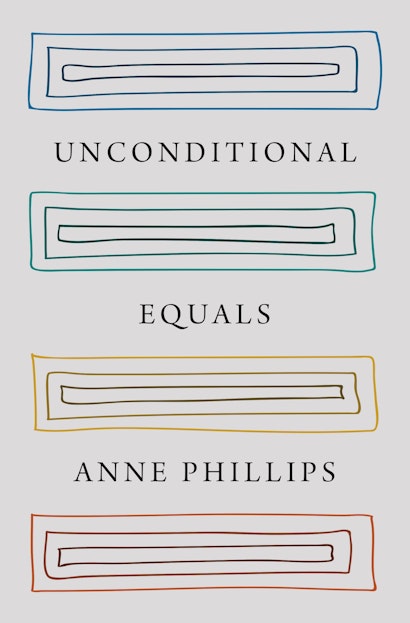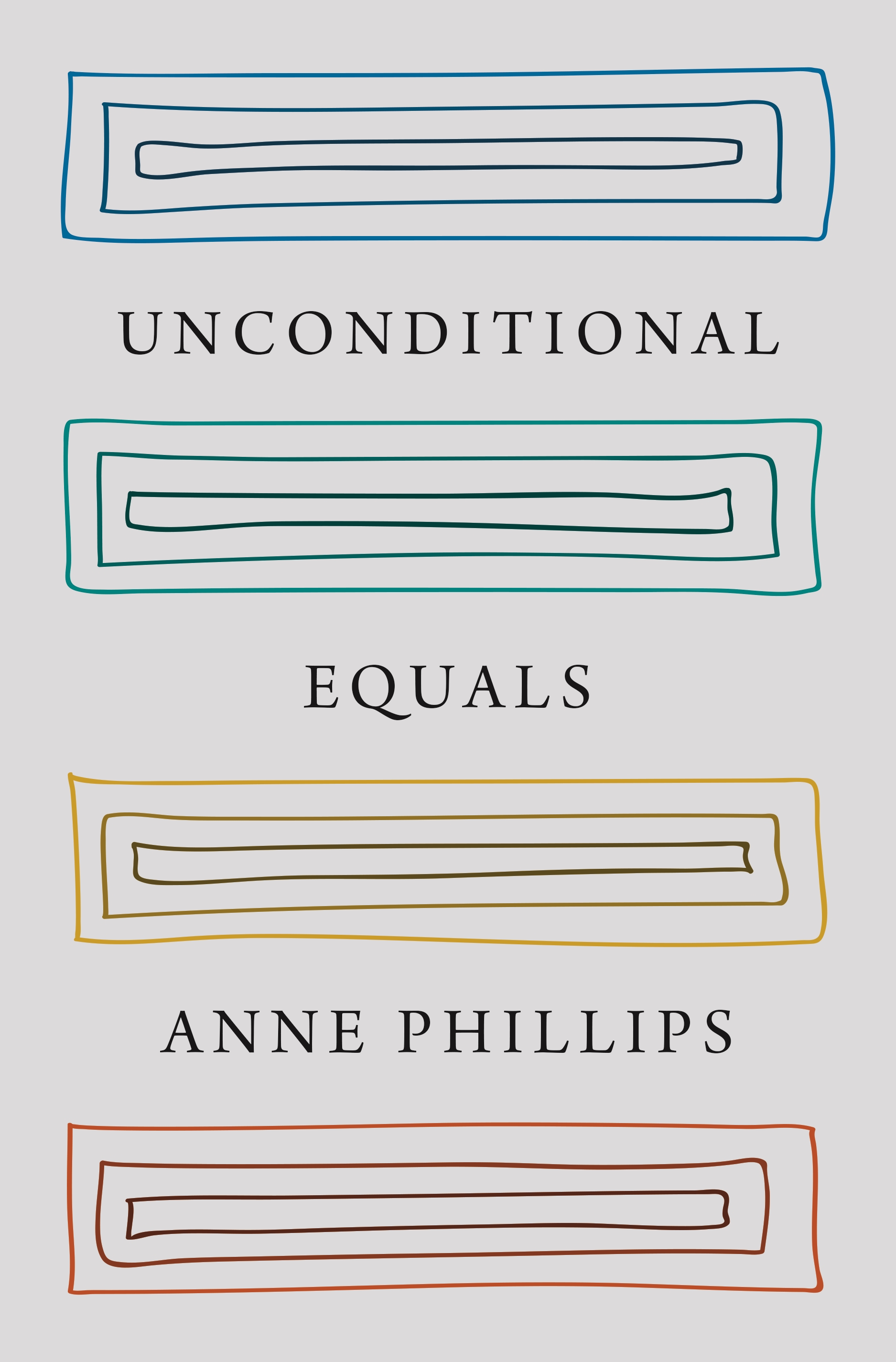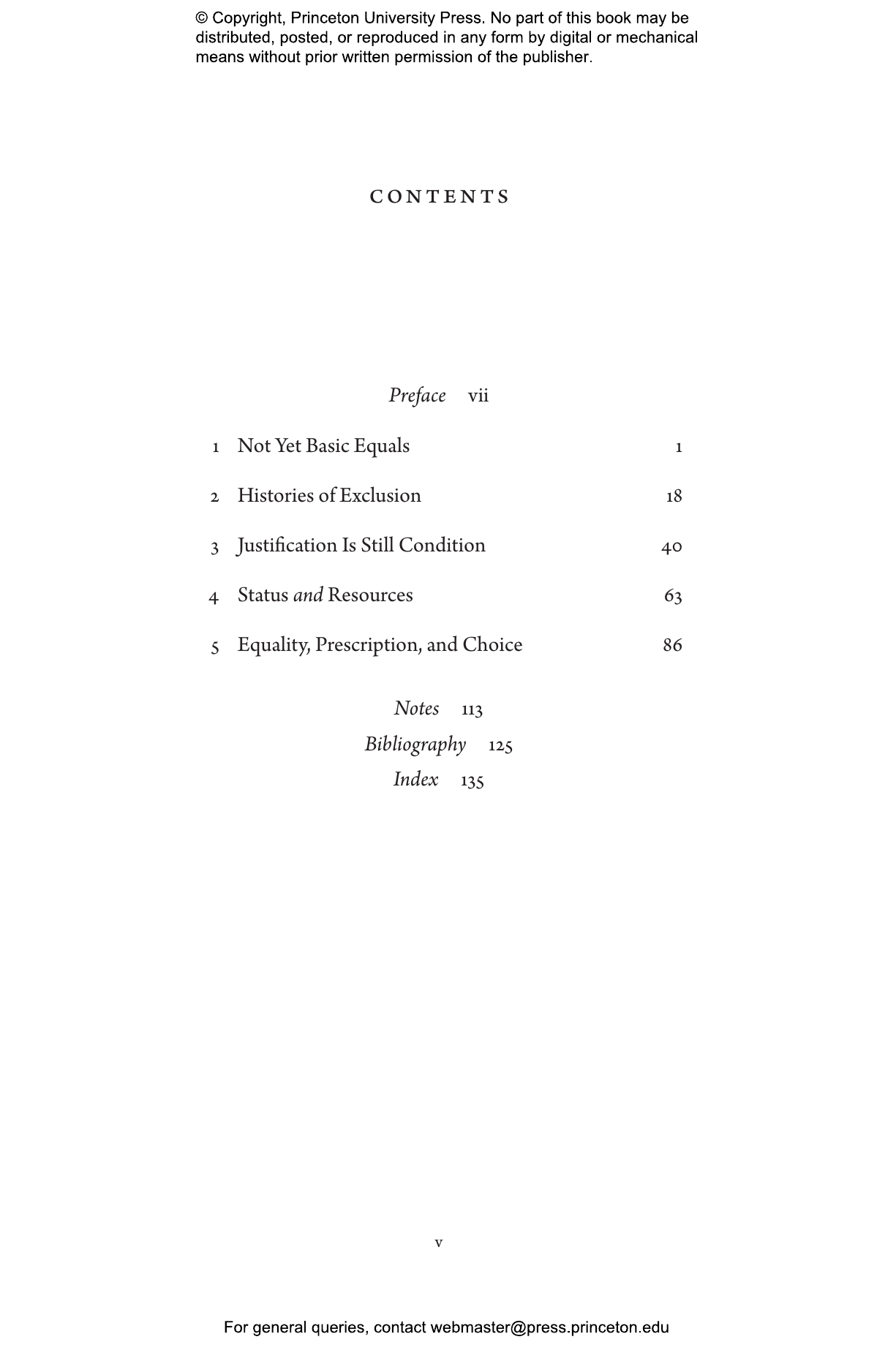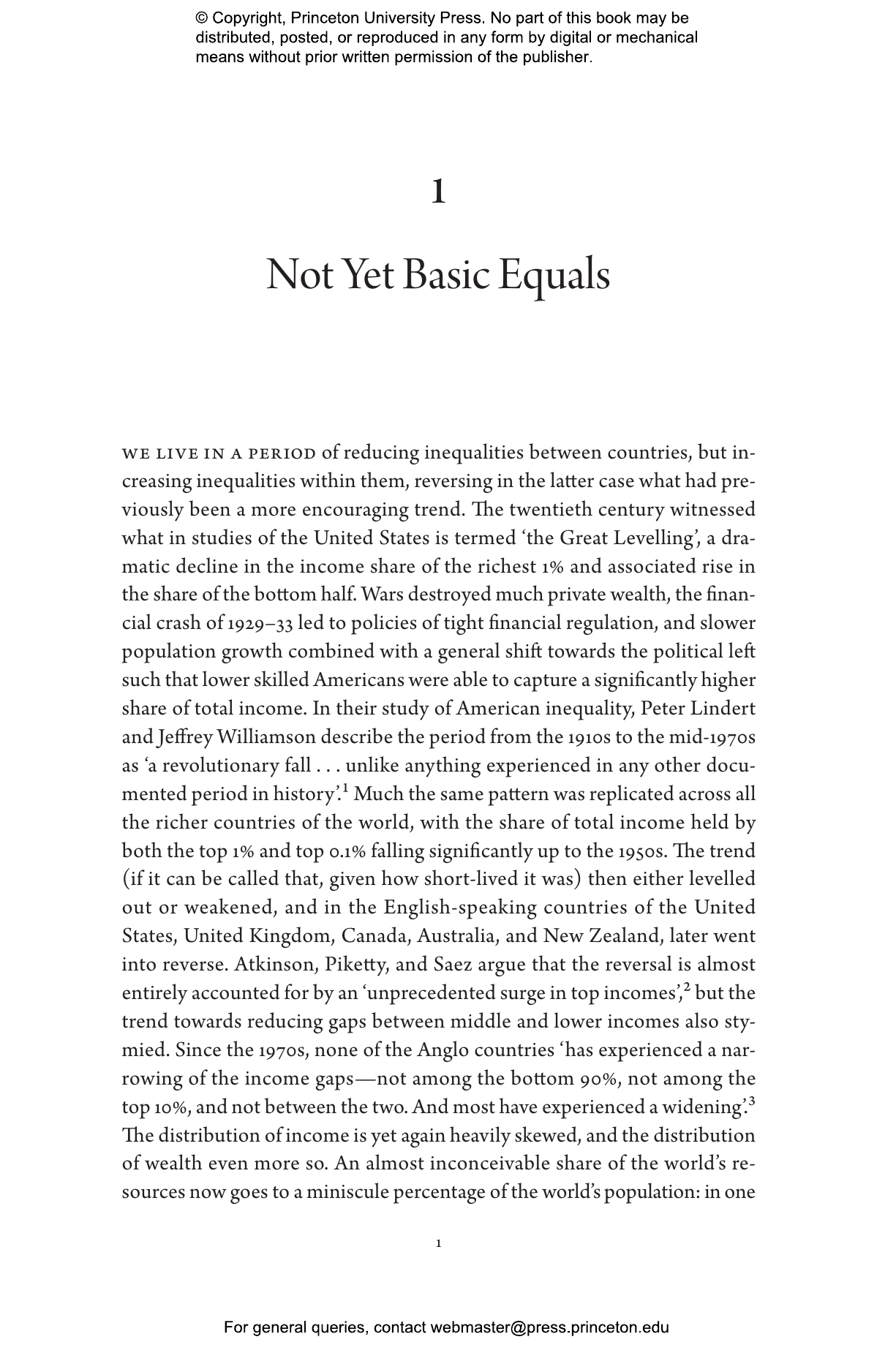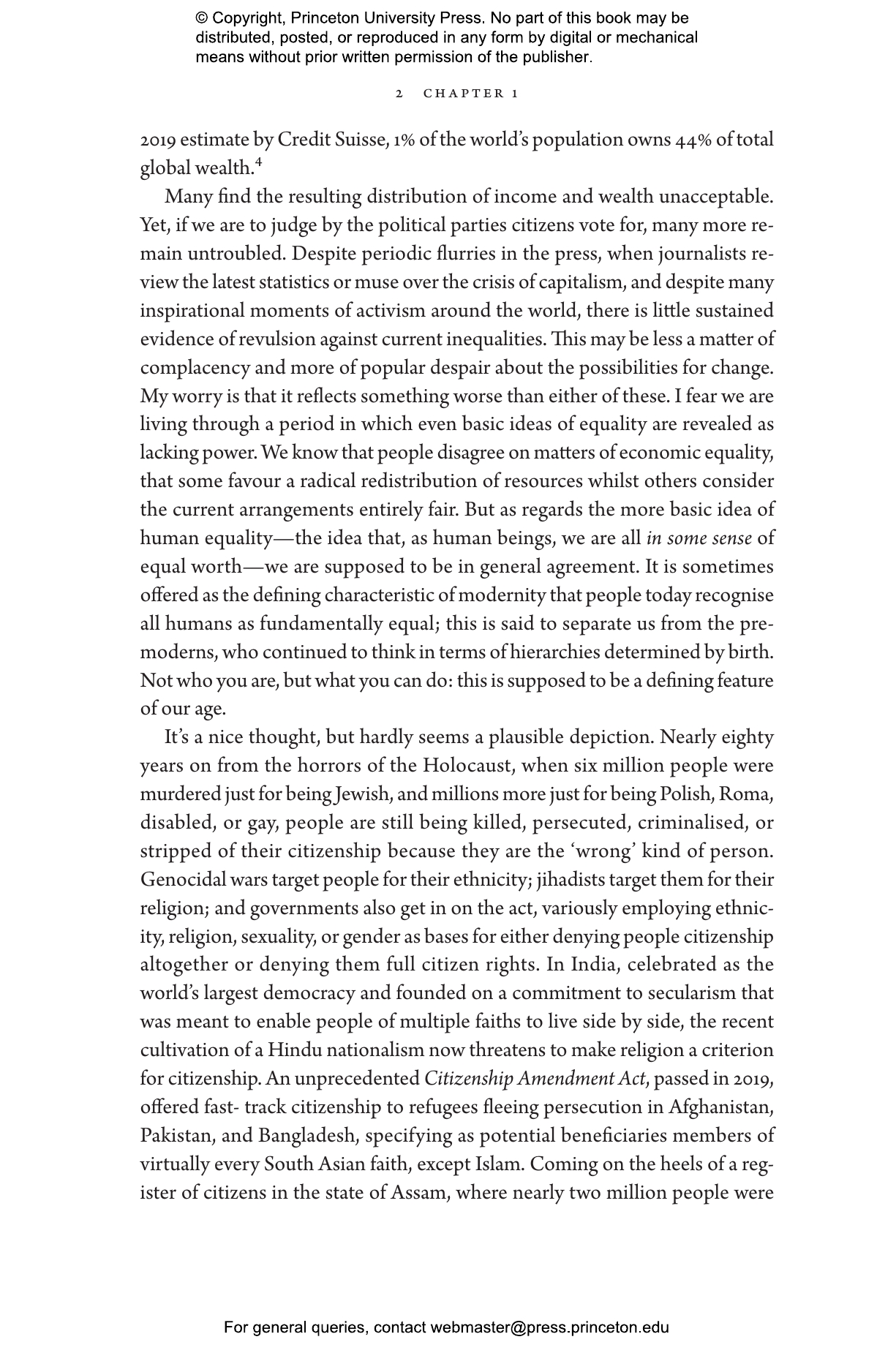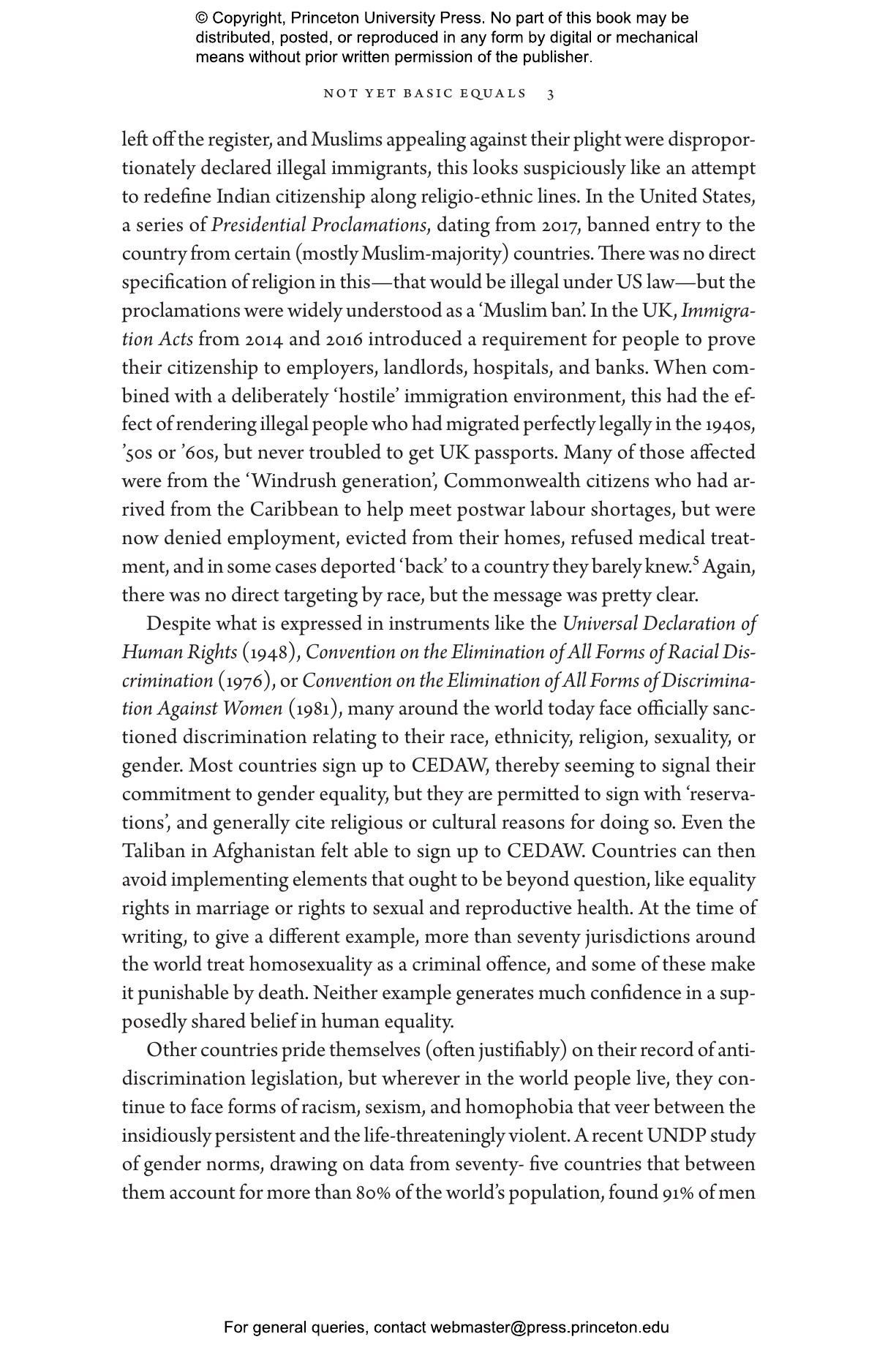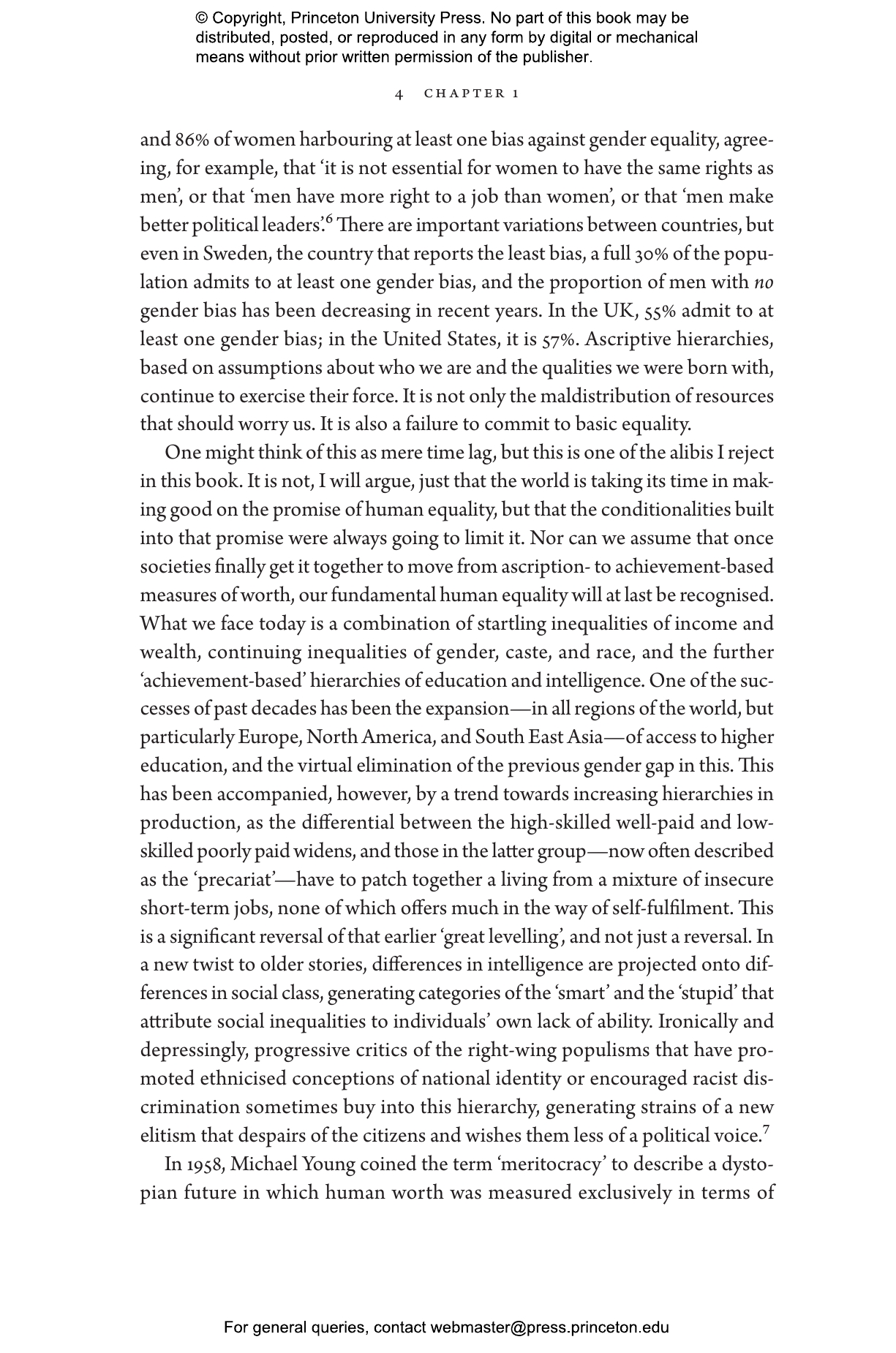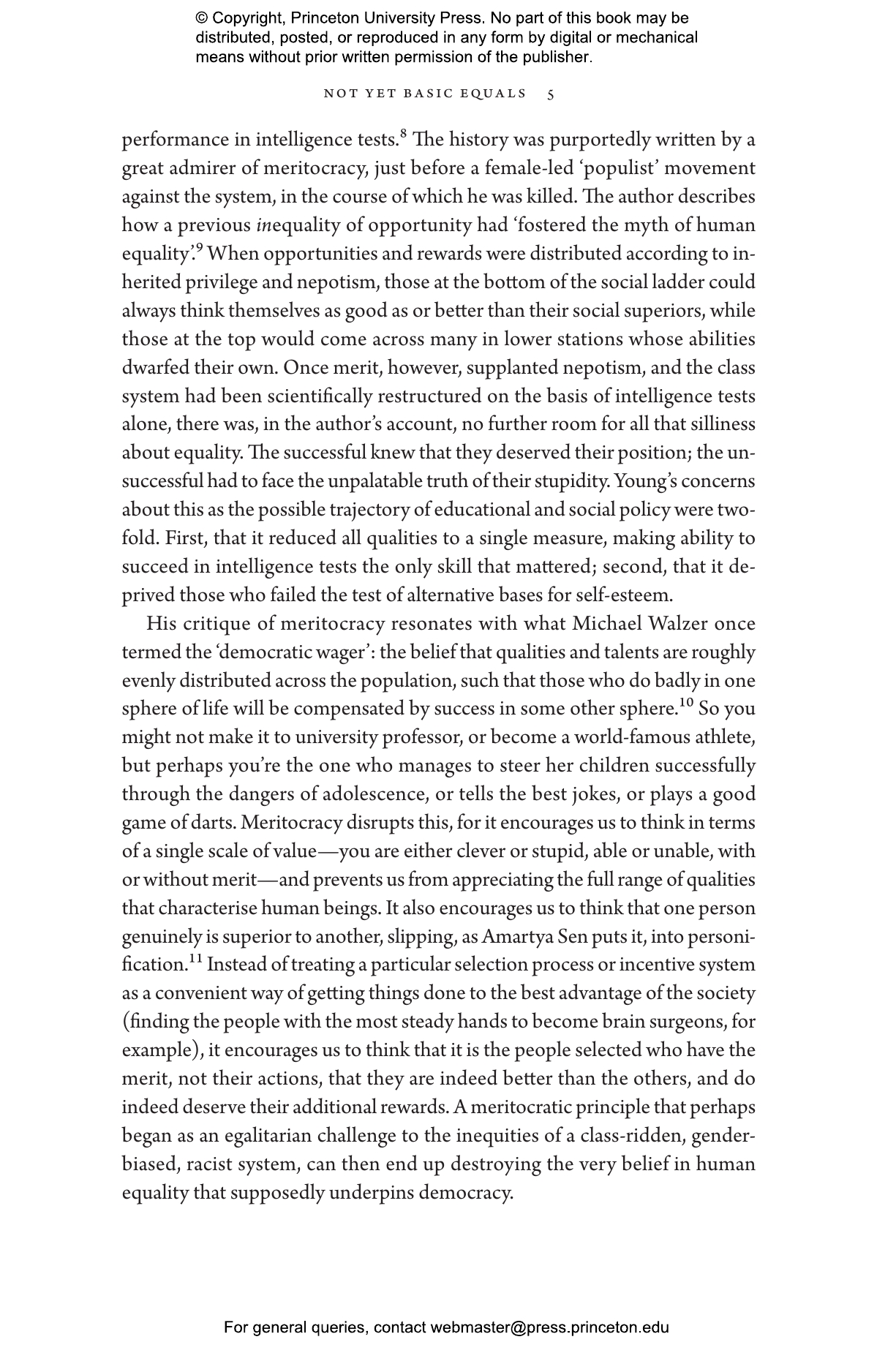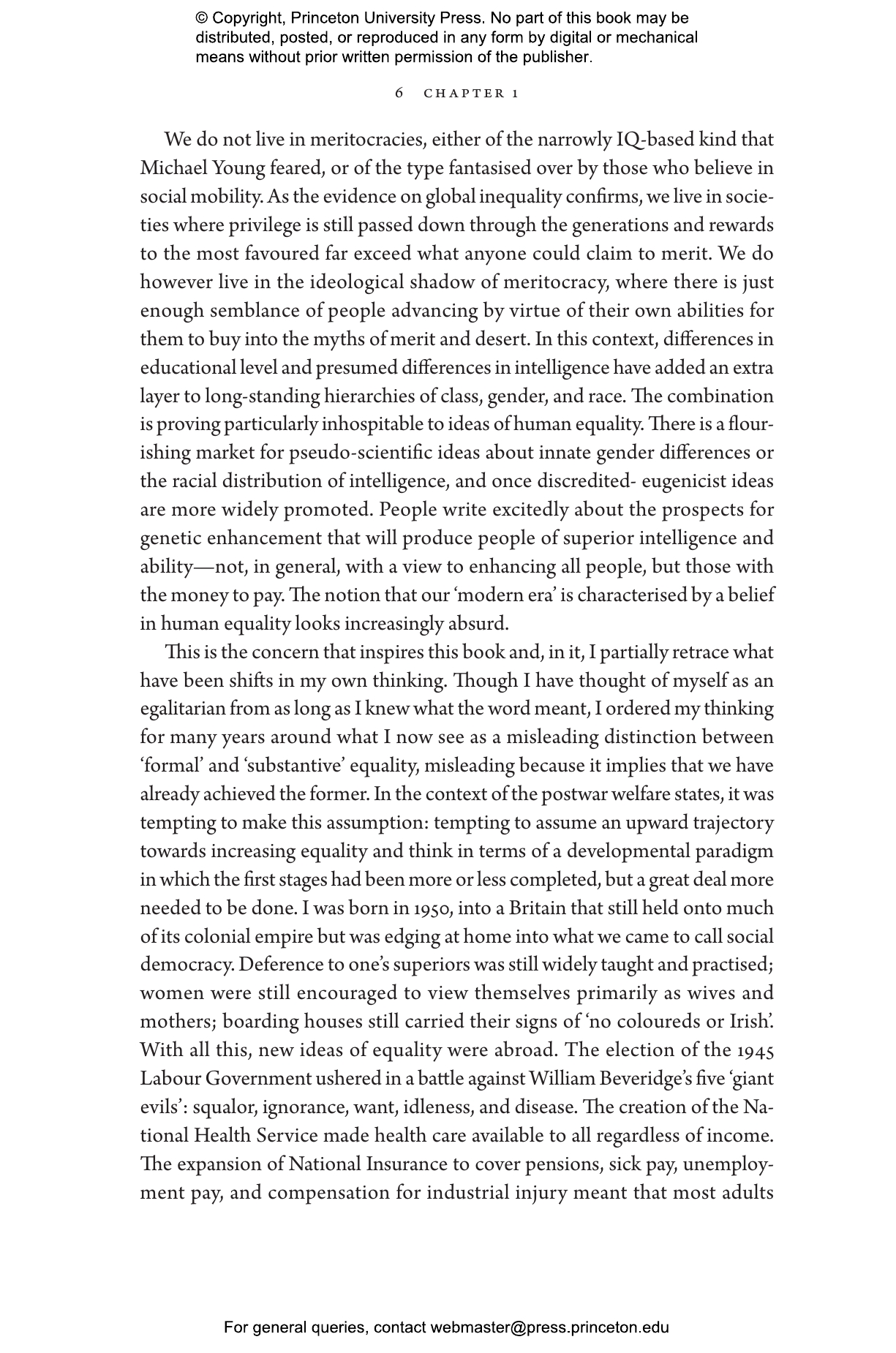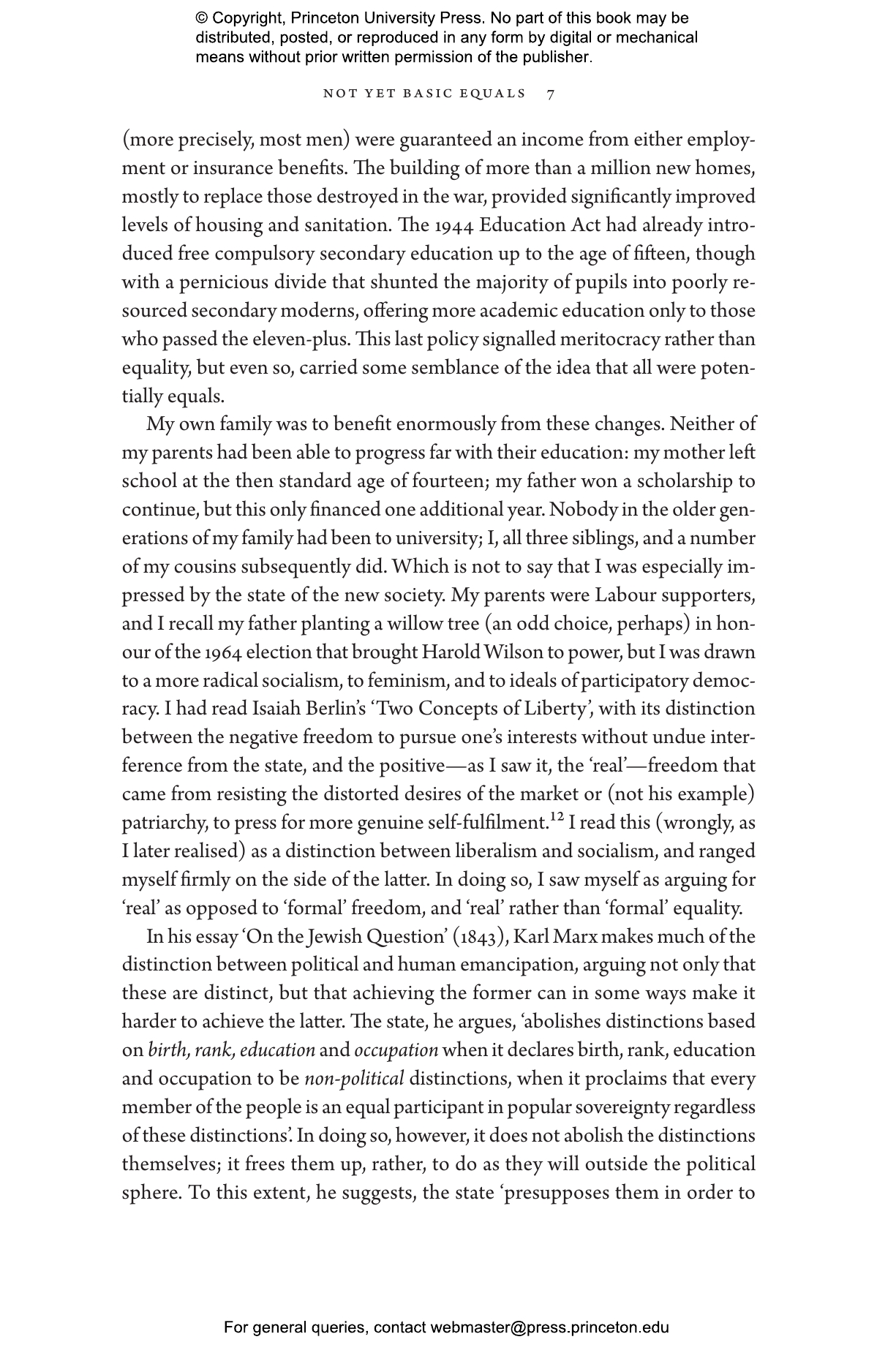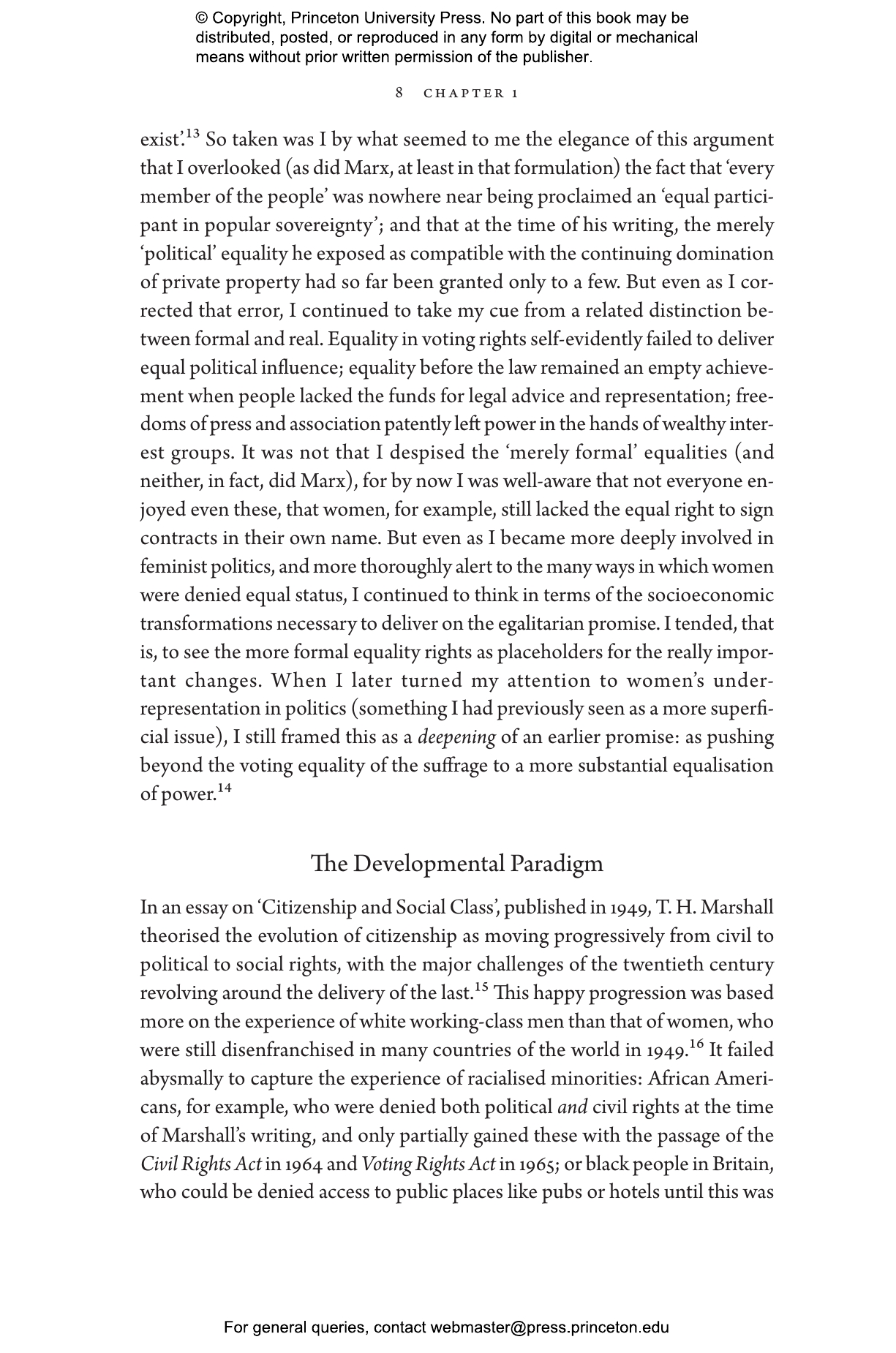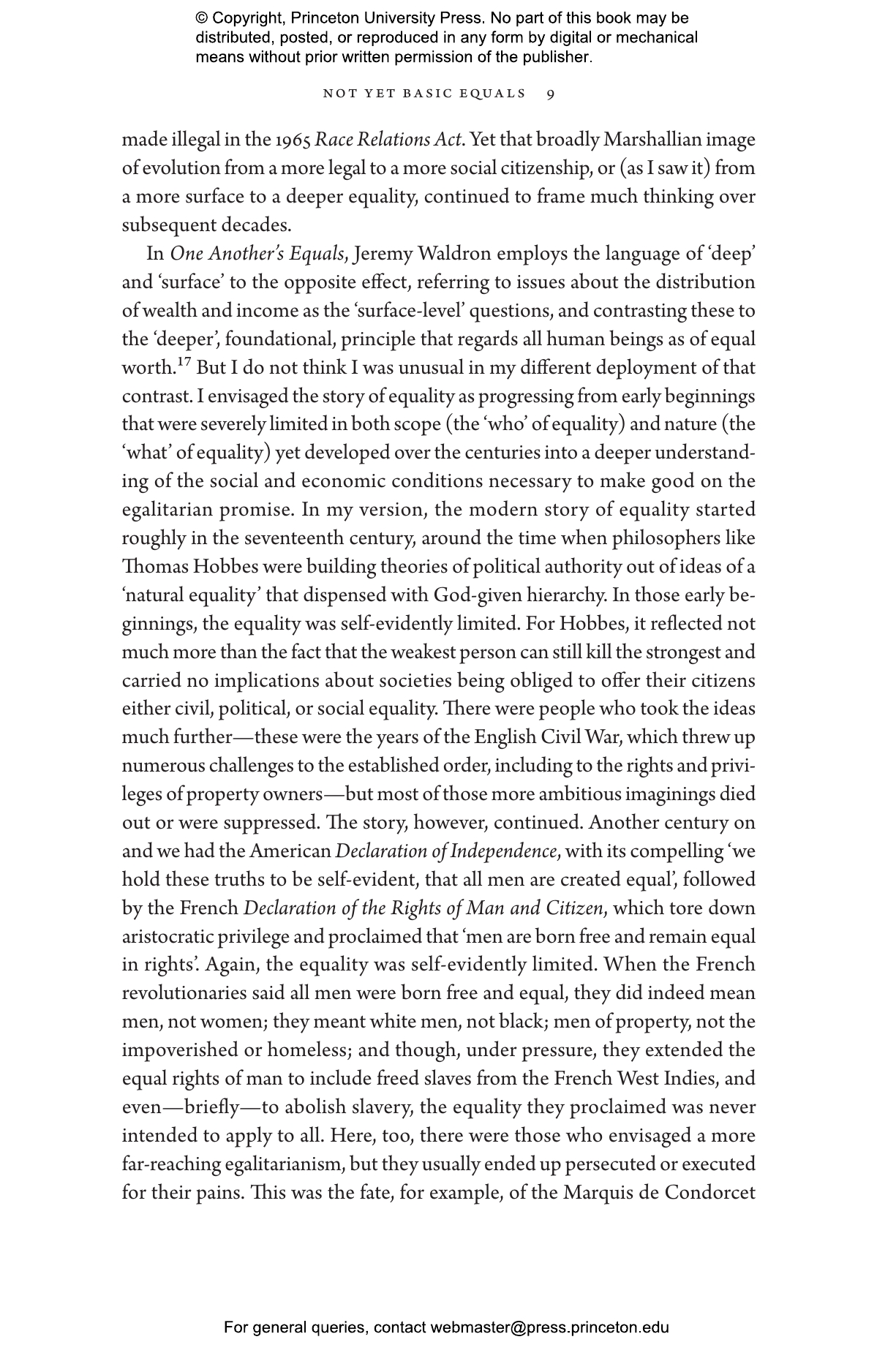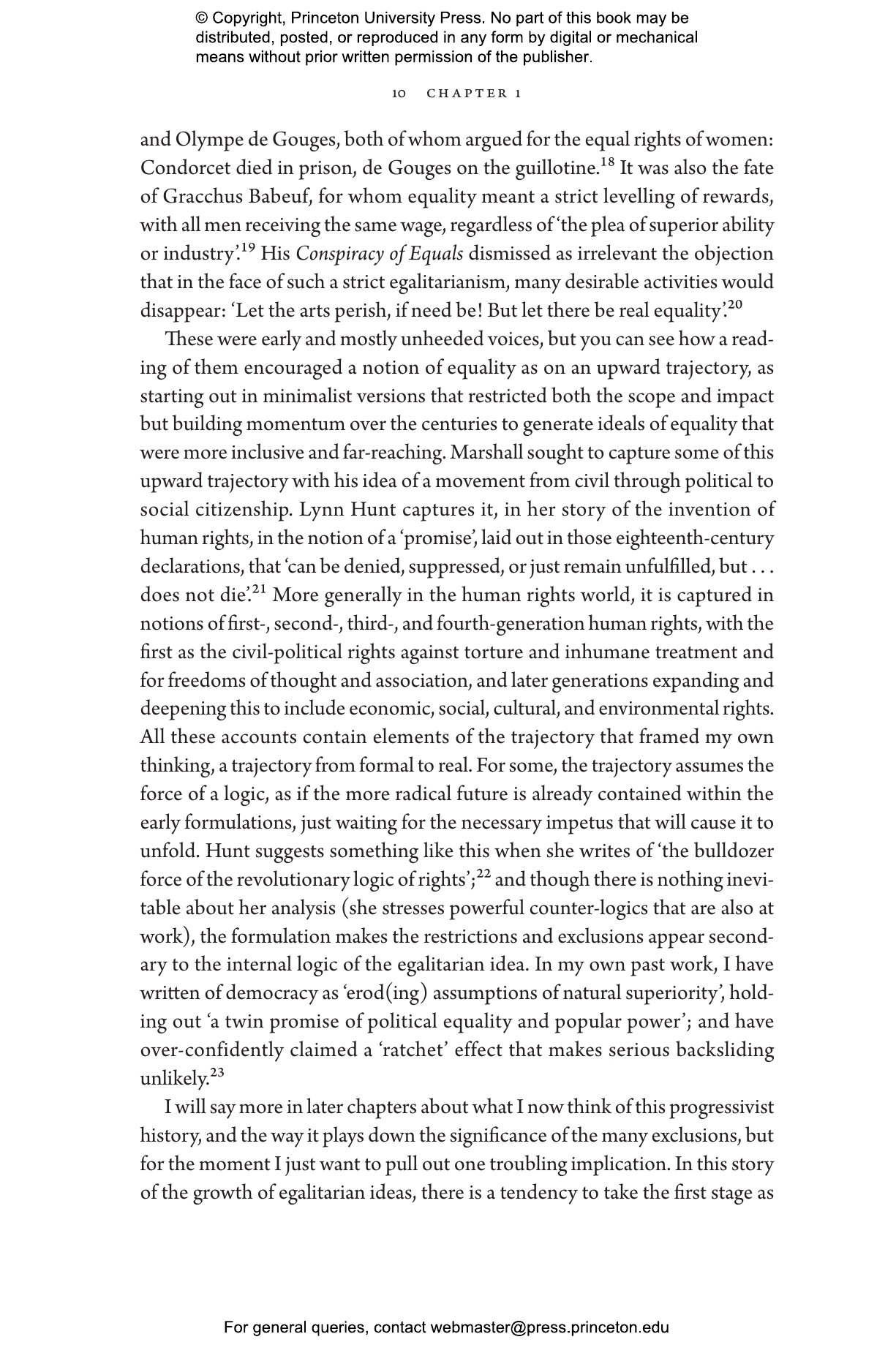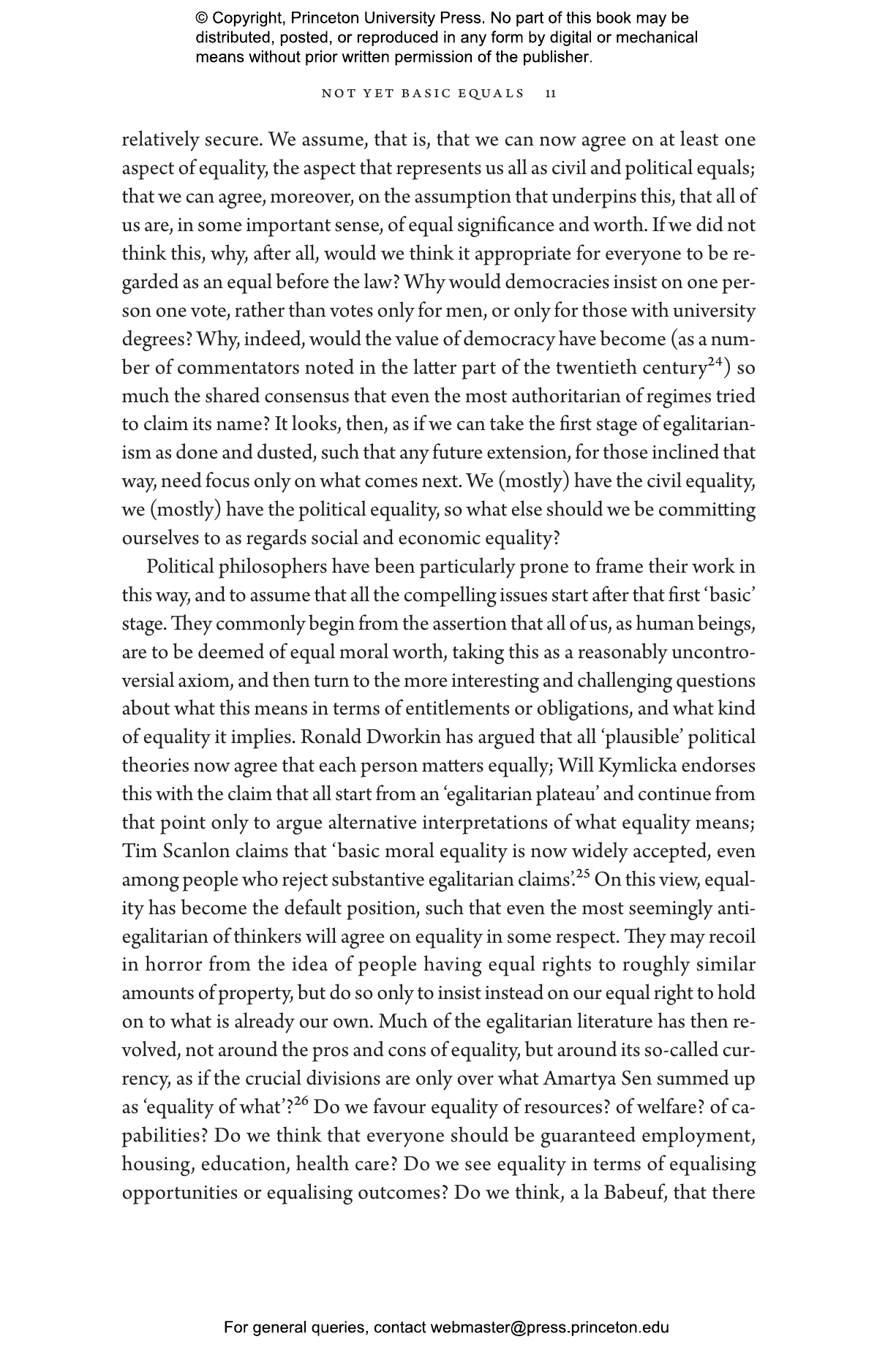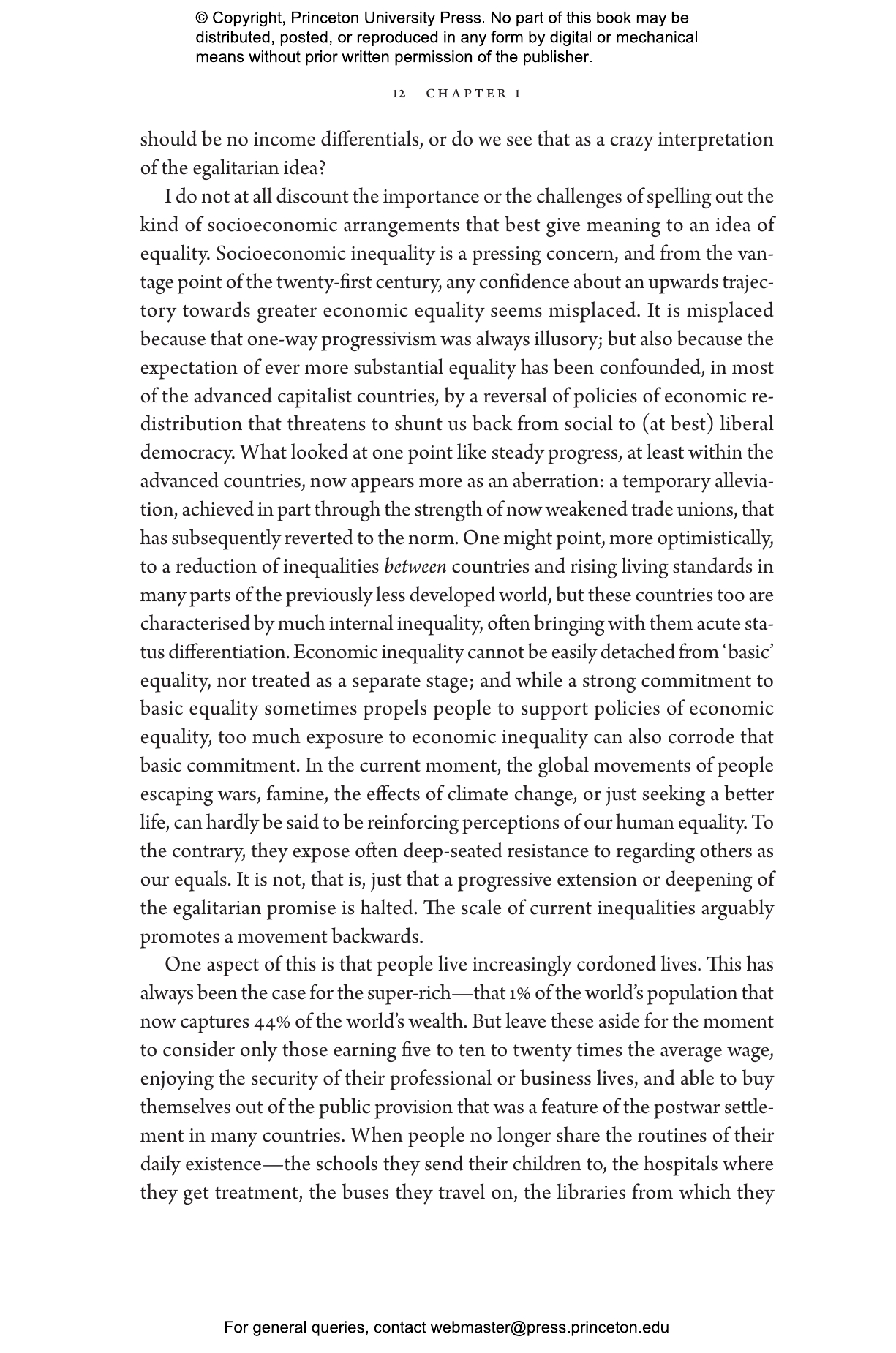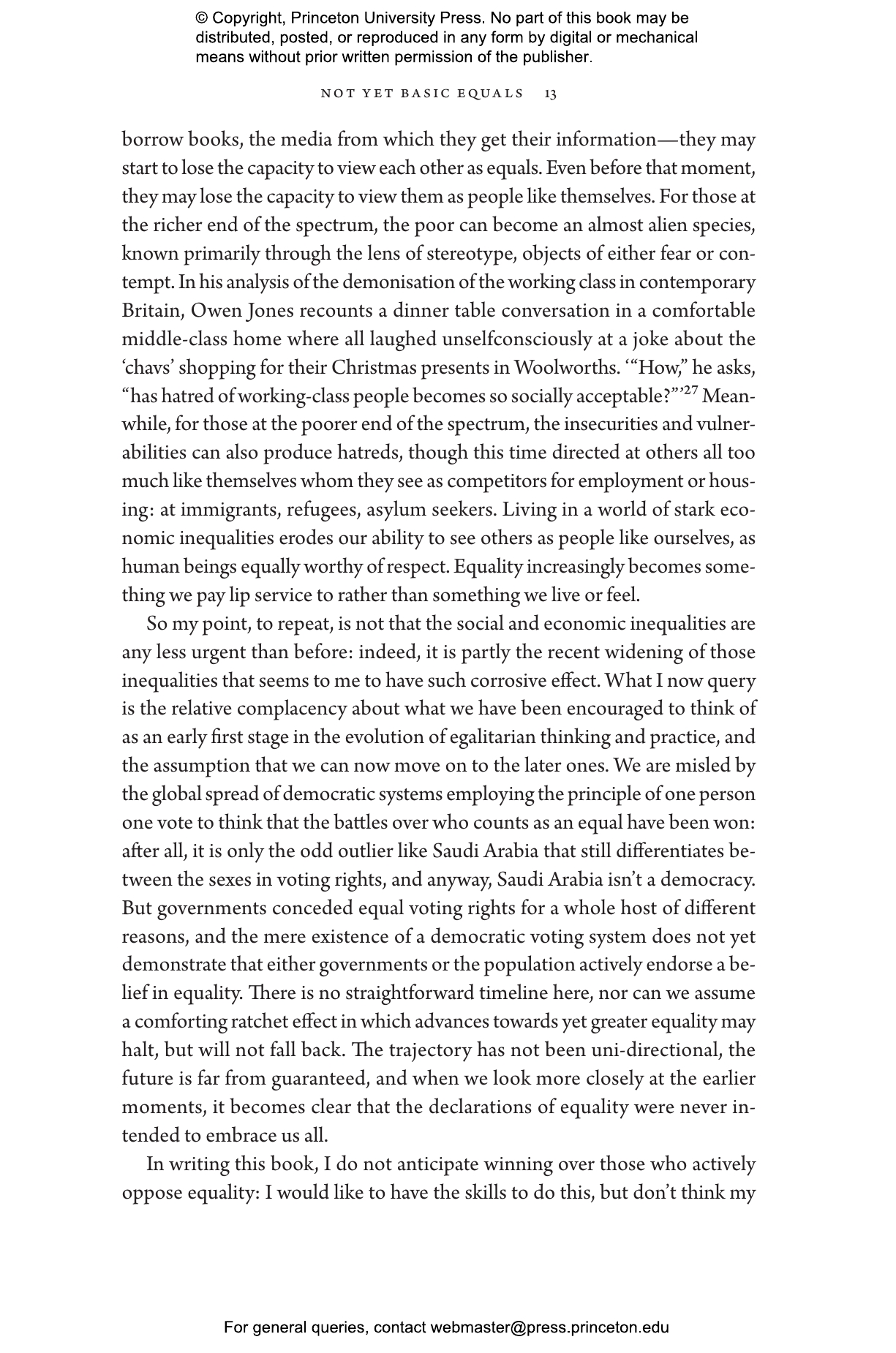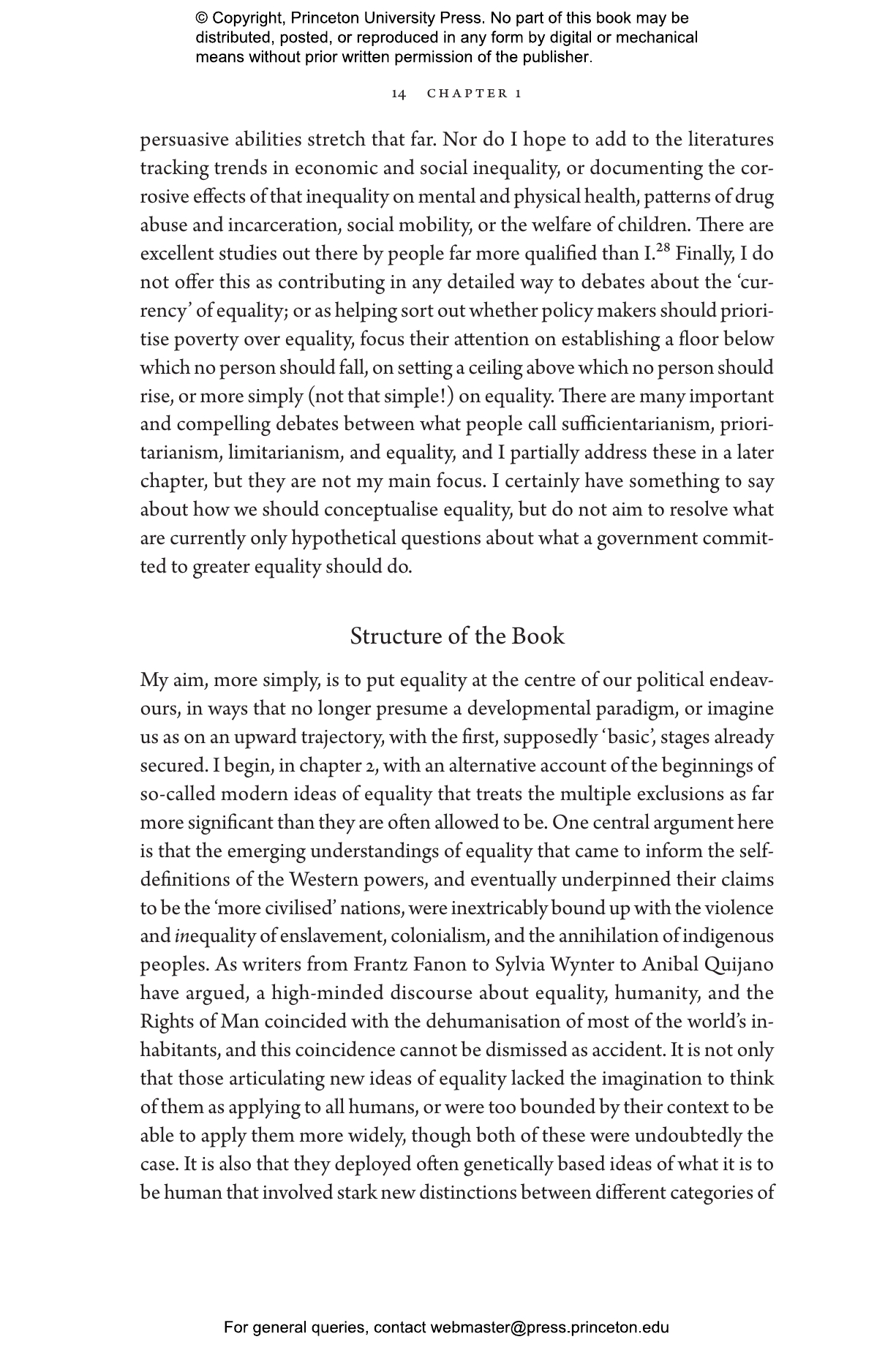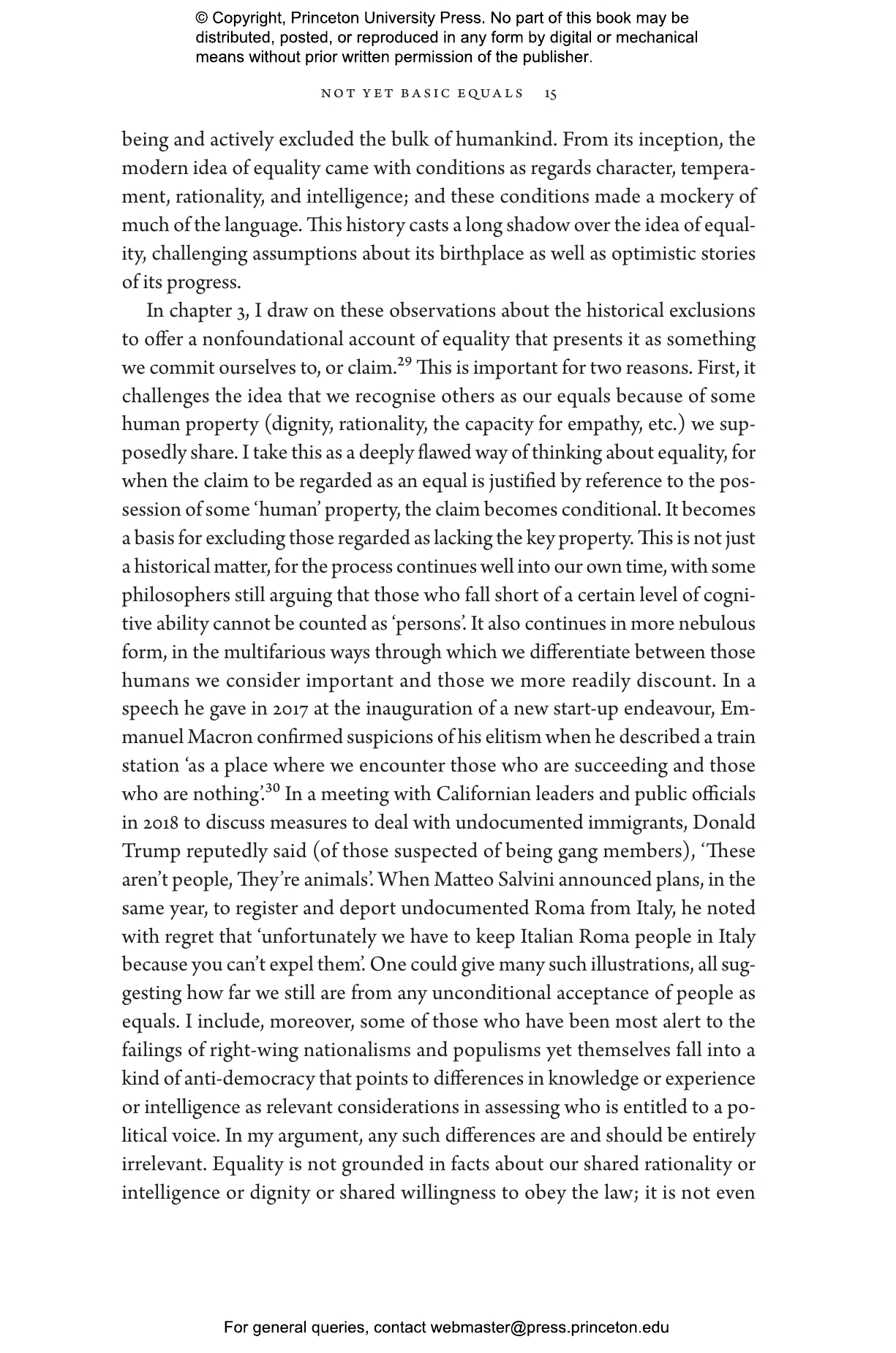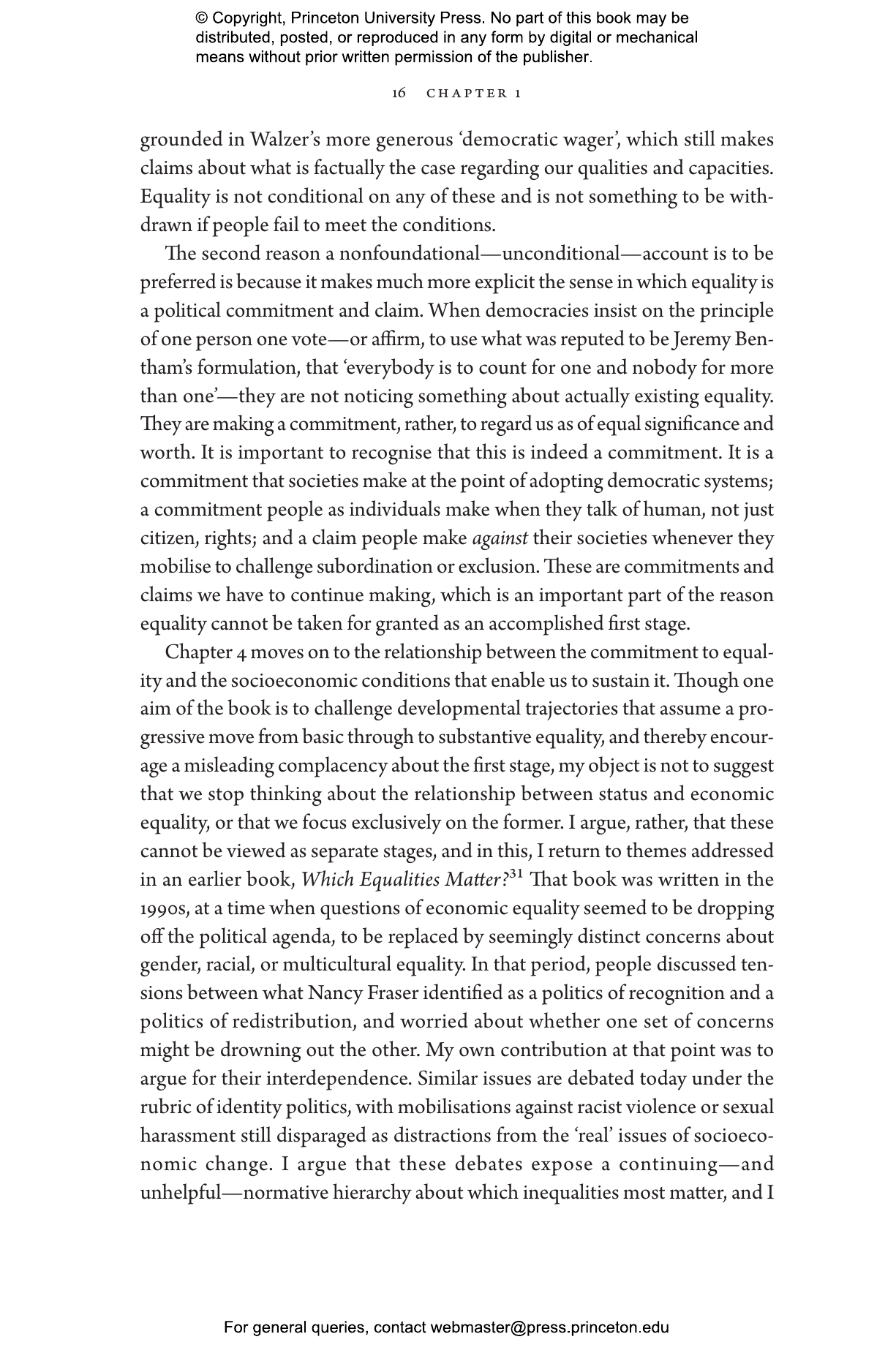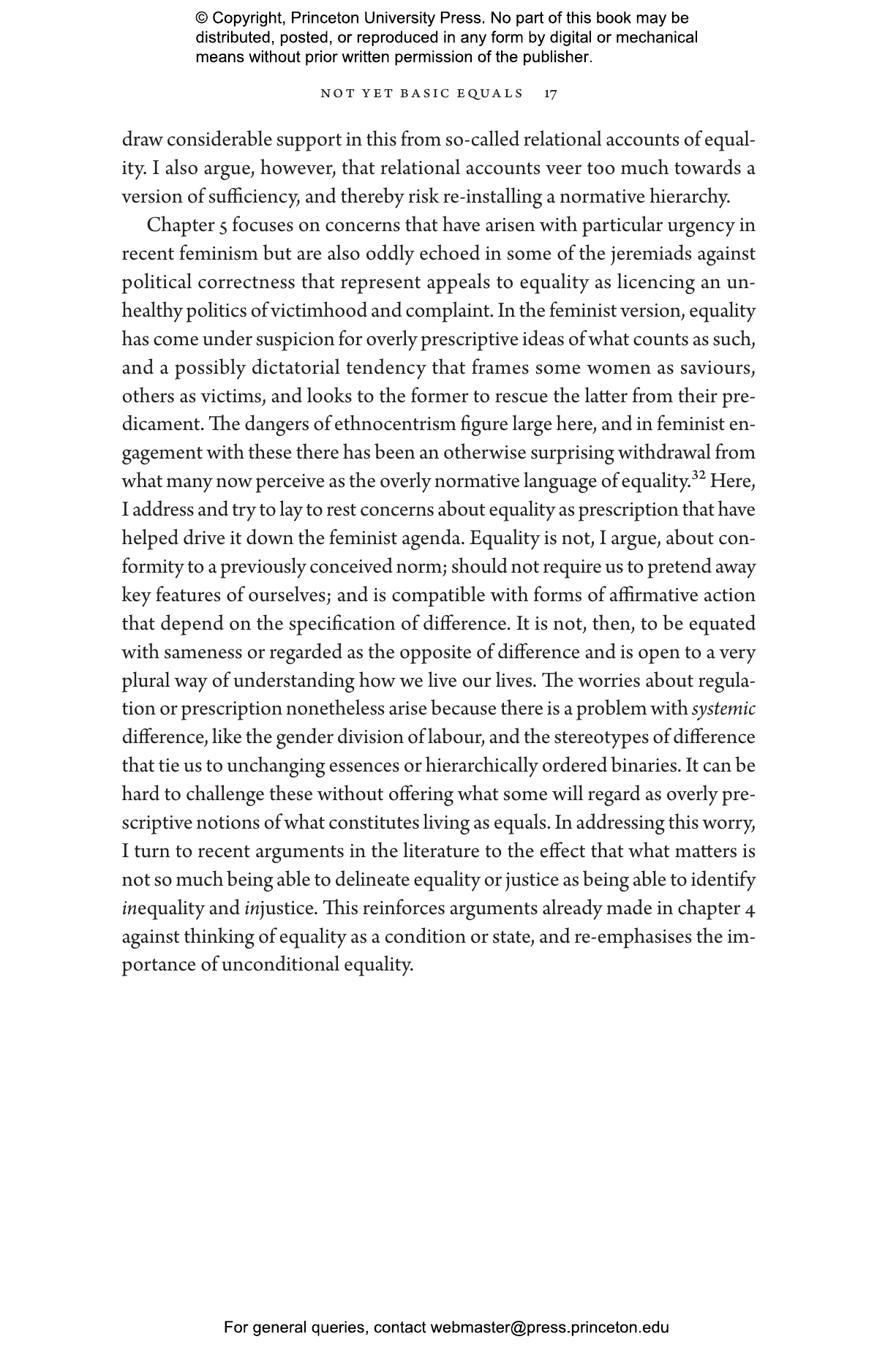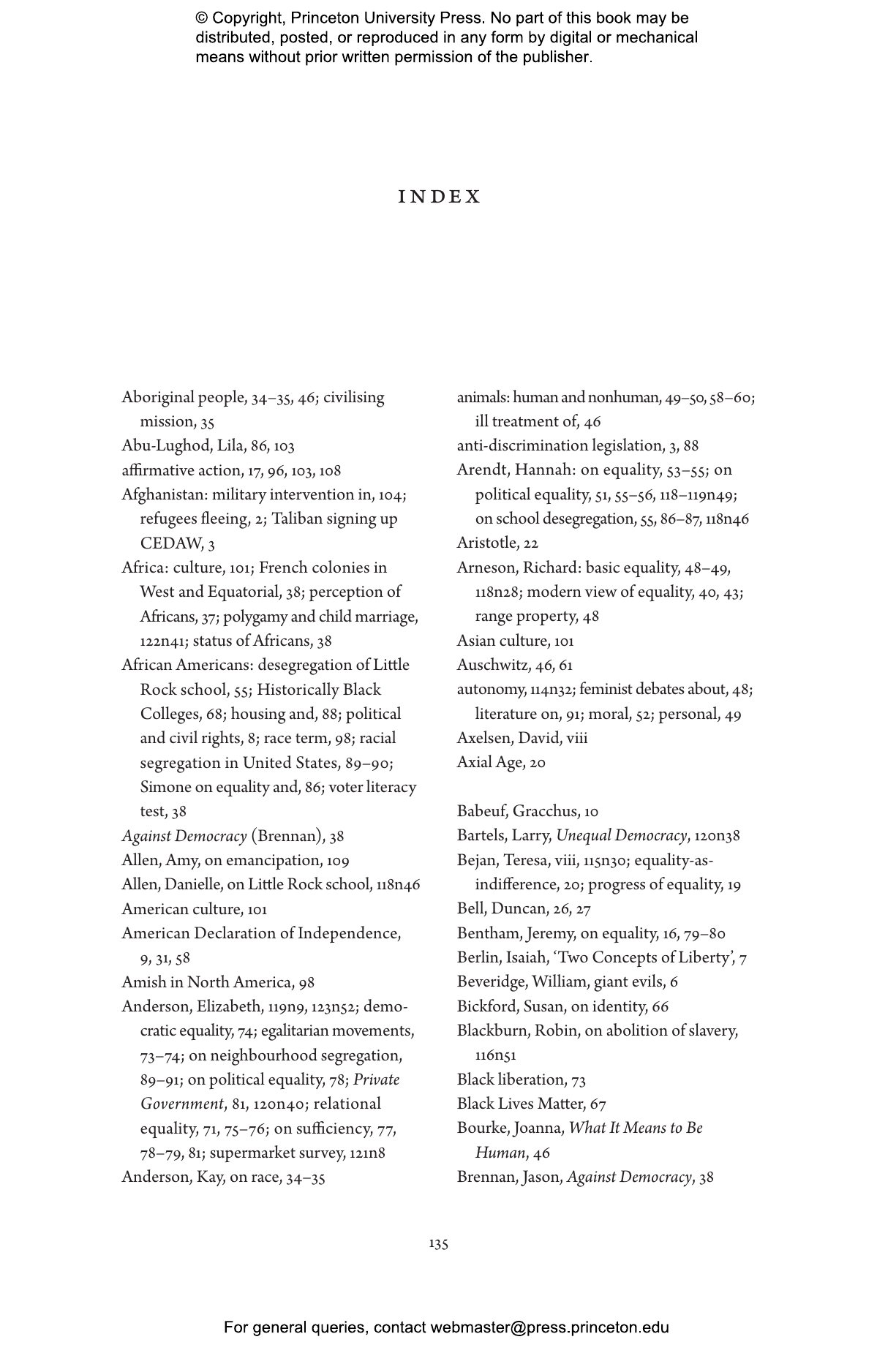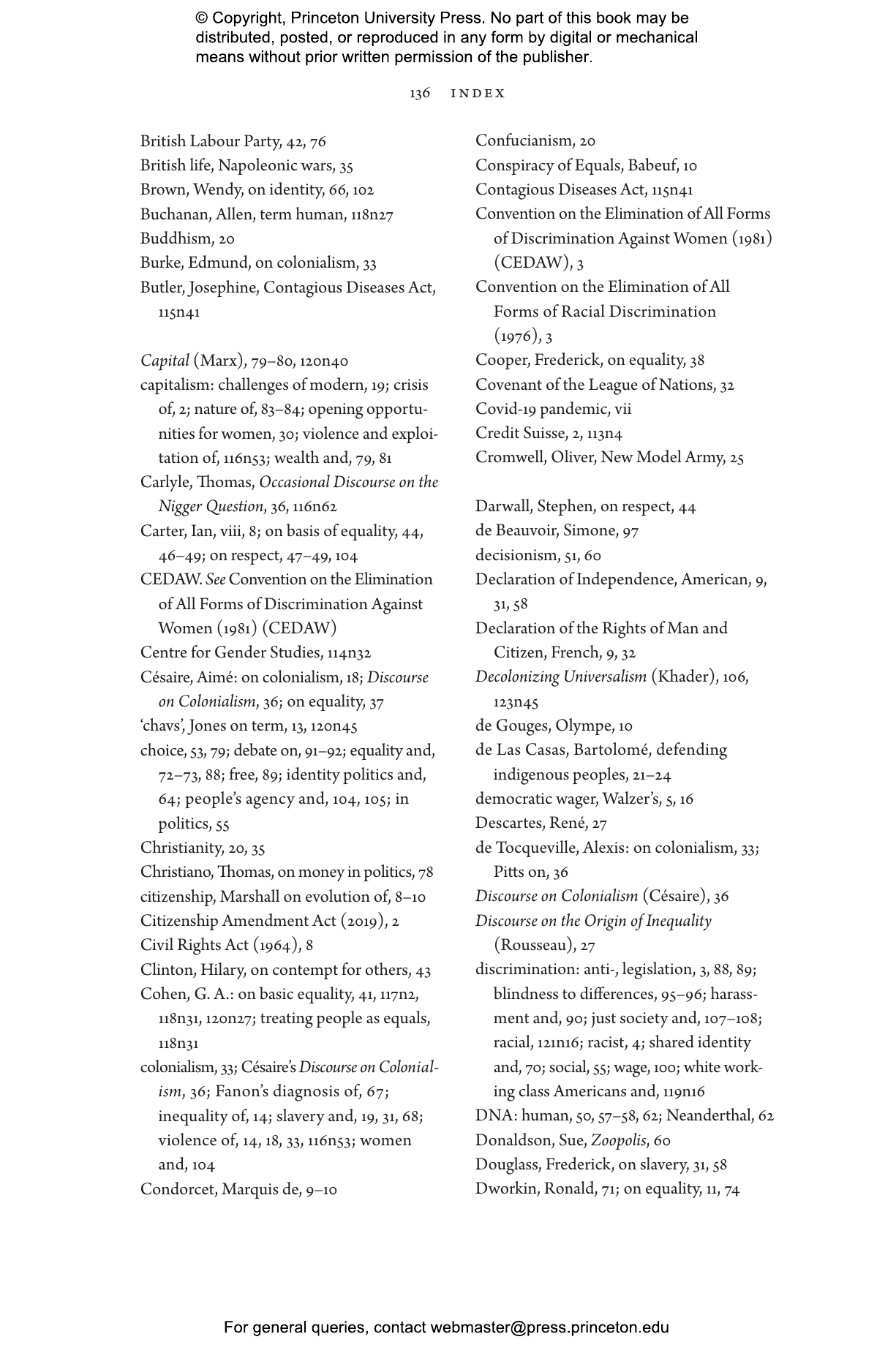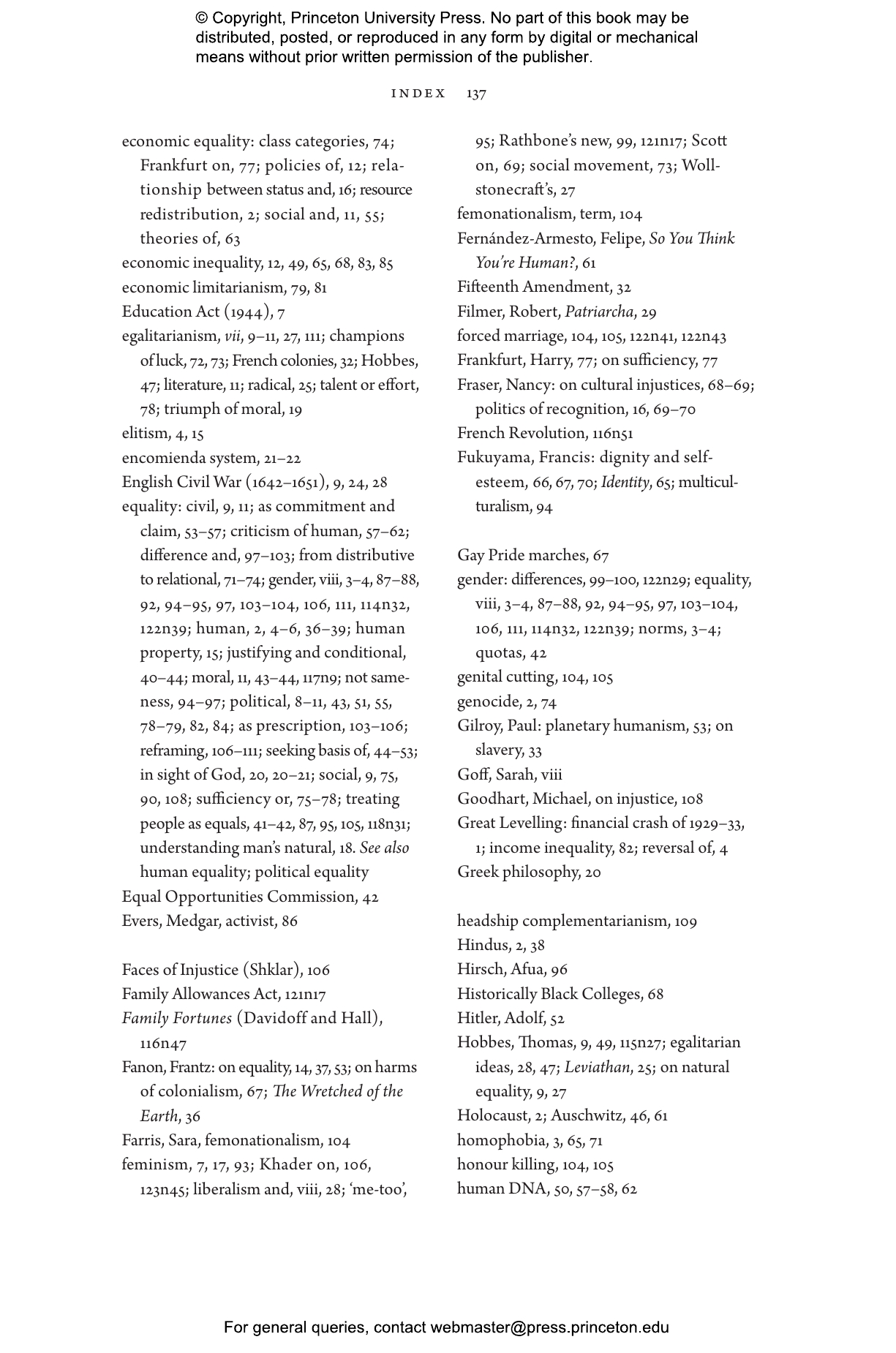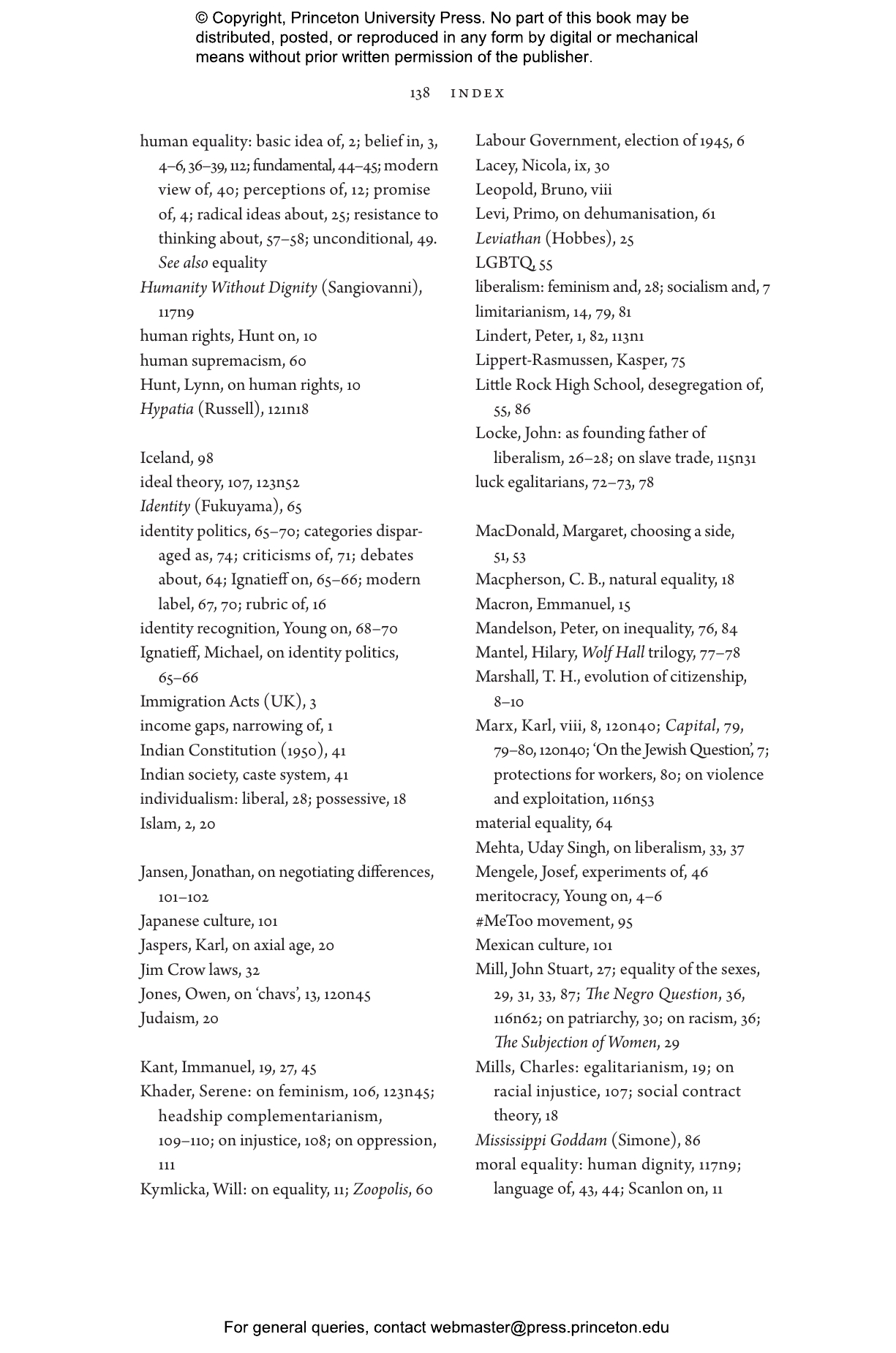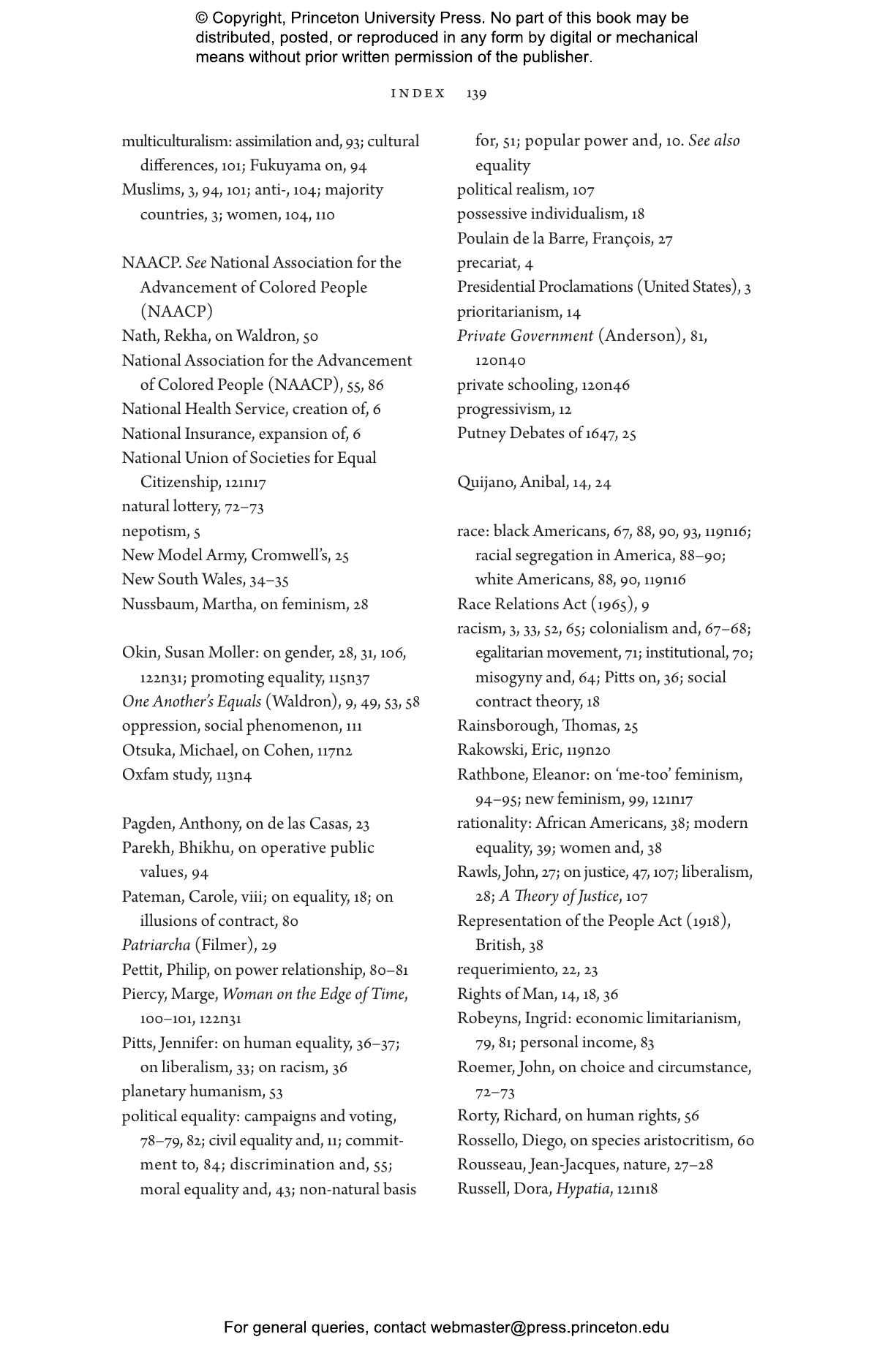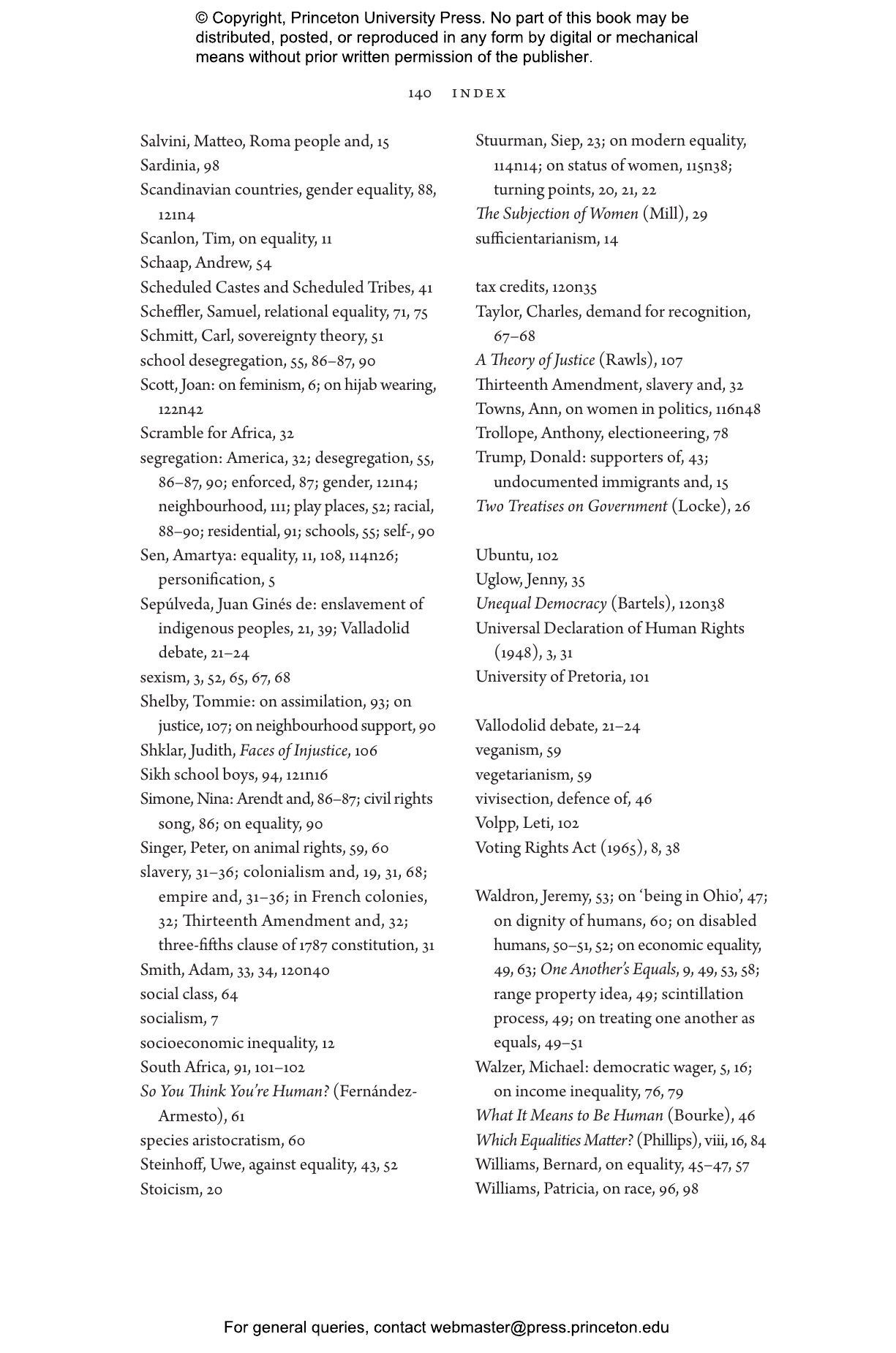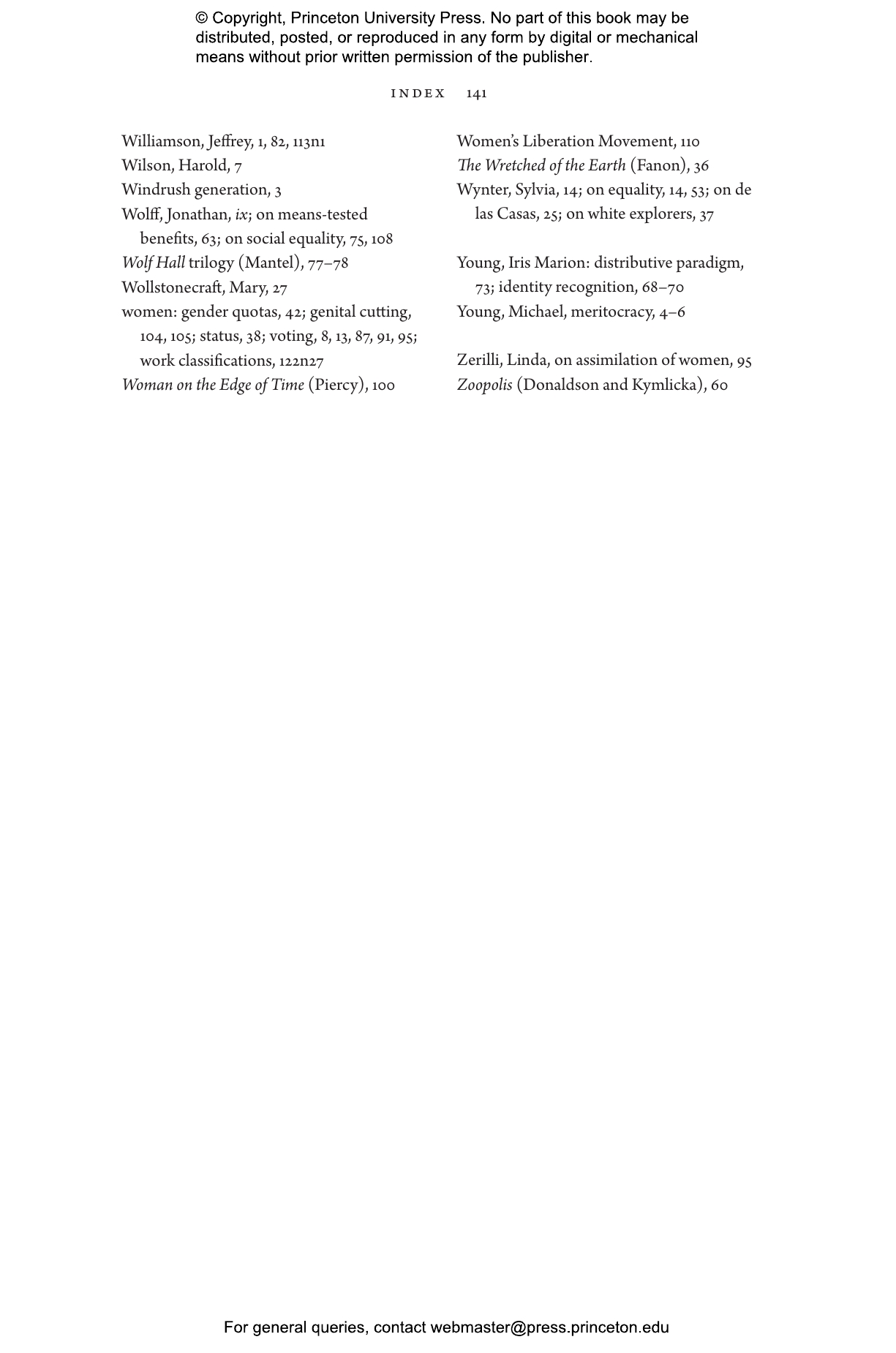For centuries, ringing declarations about all men being created equal appealed to a shared human nature as the reason to consider ourselves equals. But appeals to natural equality invited gradations of natural difference, and the ambiguity at the heart of “nature” enabled generations to write of people as equal by nature while barely noticing the exclusion of those marked as inferior by their gender, race, or class. Despite what we commonly tell ourselves, these exclusions and gradations continue today. In Unconditional Equals, political philosopher Anne Phillips challenges attempts to justify equality by reference to a shared human nature, arguing that justification turns into conditions and ends up as exclusion. Rejecting the logic of justification, she calls instead for a genuinely unconditional equality.
Drawing on political, feminist, and postcolonial theory, Unconditional Equals argues that we should understand equality not as something grounded in shared characteristics but as something people enact when they refuse to be considered inferiors. At a time when the supposedly shared belief in human equality is so patently not shared, the book makes a powerful case for seeing equality as a commitment we make to ourselves and others, and a claim we make on others when they deny us our status as equals.
Anne Phillips is the Graham Wallas Professor of Political Science at the London School of Economics, where she previously directed the LSE Gender Institute. Her books include Engendering Democracy; The Politics of Presence; Which Equalities Matter?; Multiculturalism without Culture (Princeton); Our Body, Whose Property? (Princeton); and The Politics of the Human.
"Unsettlingly brilliant. . . . Her work is proof positive of the richness of political theory in its authentically Aristotelian sense: as the abstract contemplation of politics for the sake of doing it better—if not always well."—Teresa M. Bejan, Boston Review
"Conceptually rich and compulsively readable.—David Livingstone Smith, Notre Dame Philosophical Reviews"
“This wonderful book grapples with the deep questions about equality that all of us have, but that many contemporary philosophers have shied away from asking. Phillips’s challenge to the common wisdom that the Western tradition has always been egalitarian at heart is especially compelling. She shows how sexism and imperialism were often the result of plausible construals of the value of equality, not misinterpretations of it. Yet the book leaves us with hope about how the value of equality may still be redeemed.”—Serene J. Khader, author of Decolonizing Universalism: A Transnational Feminist Ethic
“Original, exciting, and beautifully written, this is a wonderful book with a clear and persuasive argument.”—Jonathan Wolff, Blavatnik School of Government, University of Oxford
“This is a distinctive, provocative, and important account of equality as a value in social and political theory. Anne Phillips’s fluent style and autobiographical reflections make her book unusually engaging.”—Adam Swift, University College London
